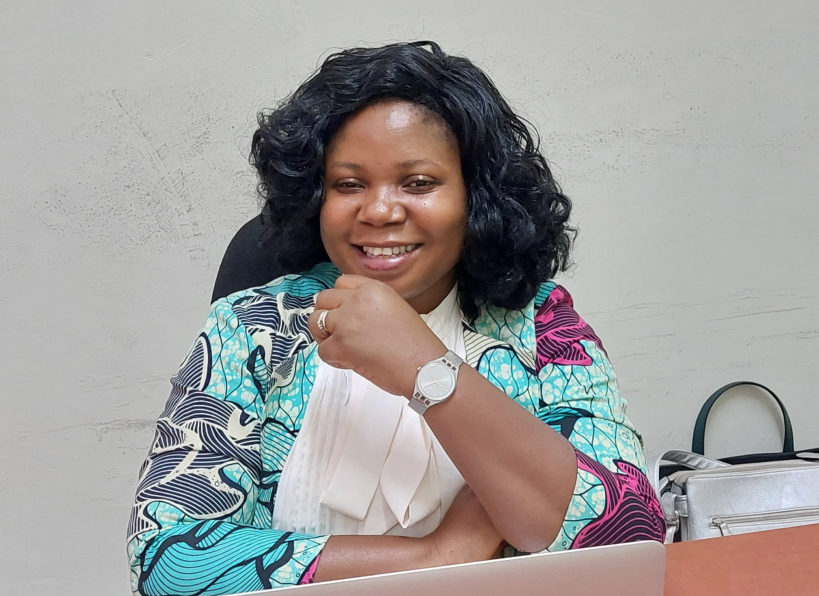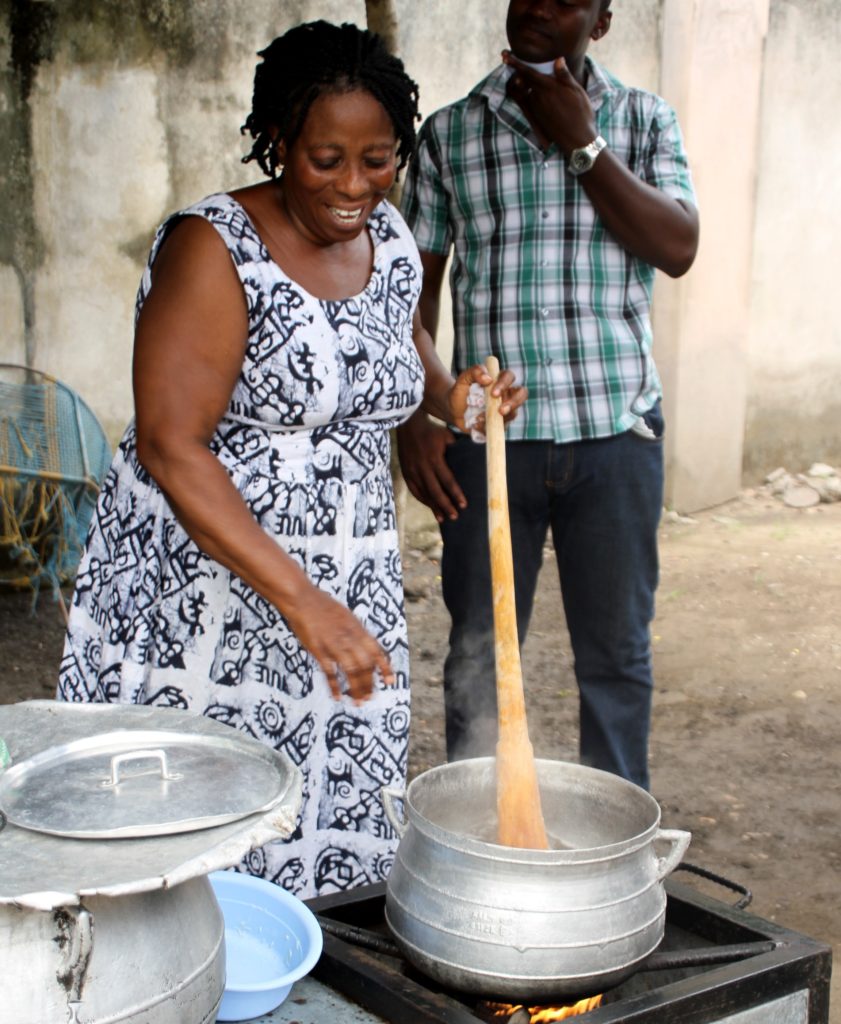Healthy Babies, Empowered Women: One Researcher’s Quest to Expand Access to Clean Cooking

Ellen Boamah was the lead coordinator of a recently completed study in Ghana on how cooking with different fuels and stoves can impact the health of mothers and children. The study was co-funded by the Clean Cooking Alliance (CCA), the National Institute of Environmental Health Sciences, and the Thrasher Research Fund.
CCA spoke with Boamah about this new research and how it can be used to support future public health policies, as well as about her experiences as a woman researcher.
This interview is part of a series showcasing women entrepreneurs in the clean cooking sector.
Ellen Boamah has spent the last decade researching the kinds of diseases that affect millions around the globe to understand how to guide people toward better health decisions.
She is especially passionate about improving the health of women and girls. In Boamah’s home country of Ghana – as in many other countries in Africa, Asia, and Central America – women and girls are primarily responsible for preparing meals and, therefore, are disproportionately exposed to pollutants from cooking with inefficient fuels like wood and charcoal. Boamah’s latest research, the Ghana Randomized Air Pollution and Health Study (GRAPHS), examines how household air pollution (HAP) from cooking impacts the health of mothers and their children.
“We lacked data on the global burden of disease that’s associated with household air pollution because most studies done in the past were either observational or used questionnaires to assess stove and fuel use,” said Boamah, who works for the Research and Development Division of the Ghana Health Service. “This was such a unique study, unlike any others done before.”
GRAPHS was a randomized controlled trial in which more than 1,400 pregnant women were assigned to one of three treatment groups: one that received liquified petroleum gas (LPG) stoves; one that received a clean-burning, fan-assisted, biomass cookstove; and one where participants continued to cook over three-stone fires. Boamah and the research team conducted measurements on HAP exposure four times during the women’s pregnancies and three times following the babies’ births. The team also collected data on the babies’ birth weight, lung function, and instances of pneumonia during their first year of life.
With this methodology, the research team could quantify how clean cooking interventions impacted levels of HAP in homes, and what that meant for the health of the women and their newborns. The data revealed that babies exposed to higher levels of HAP – both before and after birth – were more likely to experience impaired growth rates and greater risks of pneumonia, with baby girls being especially vulnerable. Encouragingly, cleaner cooking solutions showed a significant difference in HAP exposure: over an average 48-hour period, LPG users were exposed to 47 percent lower HAP levels (measured as carbon monoxide) compared to the control group.
“This study produced very fascinating results, both from a scientific and a policy perspective,” said Boamah. “We were able to show that investment in clean cooking interventions has the potential to tremendously improve health at critical stages of development.”
The research also suggests that clean cooking interventions implemented at the community level, as opposed to focusing on individual households or families, would yield much better health results.
“Many of the women involved in this study lived in compound houses or had neighbors who were continuing to use polluting cooking methods,” said Boamah. “Efforts to support clean cooking transitions that target the entire community would result in far better health benefits.”

However, Boamah emphasized that completing a study is just one step to effecting change. Not only is it crucial to directly engage with policymakers, but follow-up studies are needed to ensure that policy interventions are successful – an element that is often overlooked, according to Boamah.
“Clean cooking research that is done by local field workers is so important,” she said. “I would love to see more resources being diverted to institutions that are located where the work is actually taking place.”
Boamah is deeply familiar with the challenges of accessing research grants for this type of work, particularly as a woman working in public health research. Growing up, she didn’t see many women pursuing higher education. In 2003, she became the first woman in her community to attend a university. Now she’s pursuing her PhD and, with the help of friends and colleagues, is hosting development and career guidance workshops for women in Ghana.
“I want to encourage all my fellow women to challenge themselves and pursue their goals with all their strength and passion,” she said.

